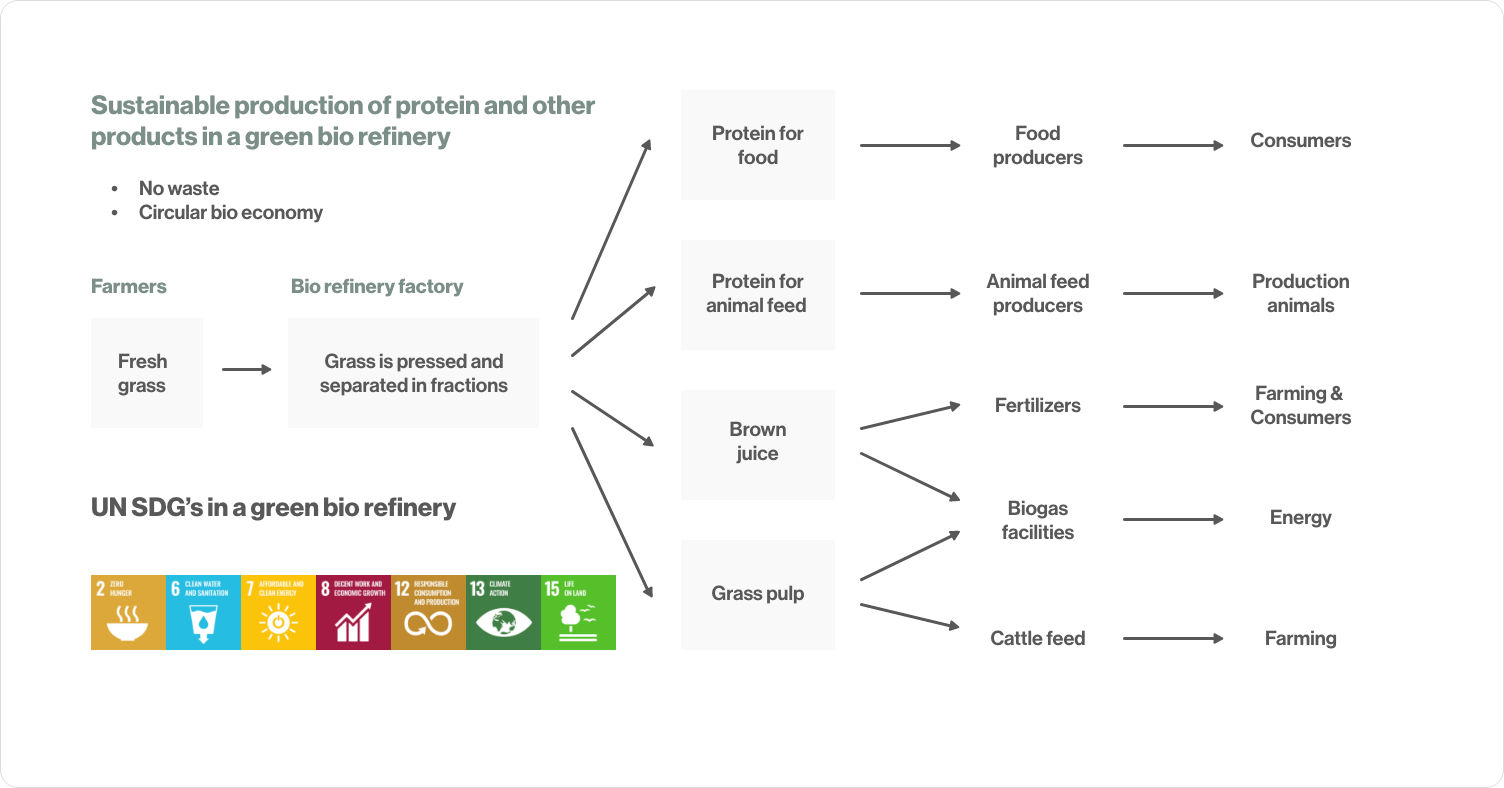Is grass the answer to a global problem?
Grass4Food is a collaboration between several partners and will soon be ready to produce protein from grass in a new pilot plant located in GreenLab. Grass protein represents a down-to-earth solution to a problem of global scale: How to feed a growing population sustainably and reduce CO2 emissions. Find out more about GreenLab’s newest tenant here.
What does it take to turn grass into a functional protein suitable for human nutrition? And can it be done in a sustainable way that is commercially viable? Those were a few of the questions that Mette and Peter Lübeck, both associate professors from the Section for Sustainable Biotechnology at Aalborg University, asked themselves when they first started researching if grass could be one of the answers to complex questions. Questions like “How do we feed the world’s growing population?”, “Is there an alternative to soy in animal feed?”, and “Can we reduce CO2 and produce protein sustainably to help reach Denmark’s 2030 goals?”
The two associate professors found the answer when they developed a technology that successfully turns grass into proteins that are not only suitable for human consumption, but also a great supplement in animal feed, a fertilizer for the farming industry, and a valuable supply for biogas plants.
Their company is called BiomassProtein and plays a key role in the Grass4Food project.
GreenLab is home green home
A company that wants to produce sustainably and cost-efficiently can find no better place to build a production site than GreenLab. Not only is the green power cheap, the industrial park also allows the companies to share their excess resources with each other and enable CO2-neutral production.
For the Grass4Food project that means it can make use of the drying facilities at Danish Marine Protein and sell its excess grass pulp to GreenLab’s biogas plant. Full-scale production is expected to start in the spring of 2022 and the production of functional proteins for human consumption will start as soon as the Grass4Food has the needed EU approval.


